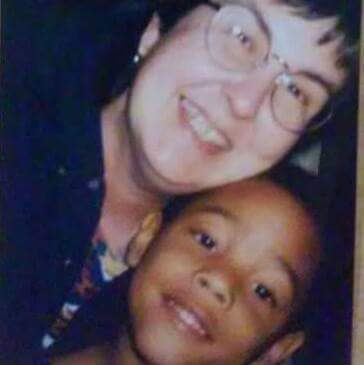
In my experience, the loss of a loved one to suicide is different from most other losses. It brings with it so many layers of pain and confusion, so many questions that will always be unanswered, at least in this lifetime.
It has been much harder for me to accept my grandson’s death than any other I have experienced in my entire life. It’s hard to even know how to ask for what I need. Those questions about why, what, if, how… they remain unanswered and, indeed, none would satisfy me, I suspect.
The one big thing I ask is that you ask: how I am, if I need to talk. And that you acknowledge my pain.
Please do not let that perceived stigma and societal fear of all things to do with mental health stand in your way. Be brave… I am trying to be. Mental illness is not a dirty secret to be locked away and left unspoken. It is real. It is debilitating — both for those living with it and those who care about someone who does. It does not help anyone to ignore it. It certainly does not bring solutions.
I need you to honor my child lived, that he meant the world to me and that I shall always have a hole in my heart. I need you to speak about him with respect. If you know someone who has lost a person to suicide or who has attempted it themselves, please allow them a safe space to express the hurt, anger, fear and all the other emotions they probably suppress in daily life. Offer your strength when I feel weak, your understanding when I am confused and your heart when I feel hopeless.
Here are some other things I need:
The biggest thing is not to be judgmental. In your interaction with a griever, be unconditional. Leave the blame/guilt game out of it. It does not help to hear an opinion as to “good” or “bad” …it is neither; it just is.
Express your honest concern. Grief is the elephant in the room — do not ignore it. How sad it is for me to think you don’t care. And how comforting to hear in your voice in compassion.
Be truly available. One hears so often “call if you need anything.” Maybe I do need something, yet I don’t know what. Perhaps you could just come to me and wait while I figure it out.
Offer practical services. Especially if the loss was of someone close, it is easy to forget practicalities. When my husband died I was not thinking about much at all; I was running on autopilot. During that time, my dear, dear friend, M.E., not only lent her heart to me for hearing my pain, she also provided advice and assistance in dealing with things that just have to get done. She made a binder for me with items that needed attention and sectioned it off into “immediate,” “next week,” “monthly,” etc. She even made some difficult calls for me in those first few days… like dealing with the funeral home and notifying people of my spouse’s death.
Last, though surely not least, listen. Between the lines and in the silence…listen with your heart.
If you or someone you know needs help, visit our suicide prevention resources page.
If you need support right now, call the Suicide Prevention Lifeline at 1-800-273-8255. You can reach the Crisis Text Line by texting “START” to 741-741.

